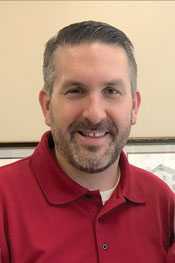While the story of Lottie Moon is well known among Southern Baptists today, there are a host of missionaries to China who came after her. One of those who did a remarkable work — but has largely been forgotten — is Bao Si Ding.

Ben Stratton
Amazing enough, Bao’s story starts in Kentucky.
In 1903, W. Eugene Sallee went to China as a Southern Baptist missionary. Sallee was born and reared in Kentucky— his father being J.M. Sallee, pastor of First Baptist Church in Henderson, and author of the famous theological novel Mabel Clement.
Eugene Sallee settled in Kaifeng, the capital of the Honan Province, where he established a Baptist church and Kaifeng Baptist College. He shared the gospel there with a young man named Bao Si Ding, who was gloriously saved. Devel- oping a burden for his lost countrymen, Bao soon realized the Lord was calling him to preach. With Sallee’s encourage- ment, he moved to Kentucky to train for ministry.
Bao graduated from Georgetown College in 1923, and went on to earn his Th.G. (graduate of theology) degree from The Southern Baptist Theolog- ical Seminary in 1925. During these years, the young man spoke throughout Kentucky and Tennessee on the spiritual needs of China. He wrote in the 1924 Home and Foreign Field magazine, “The greatest need of China is not American civilization and education, but the simple gospel of Christ … with the salvation of Christ, the Chinese can make their own national prosperity.”
During his time at Georgetown, Bao joined Ashland Avenue Baptist Church. His ordination to the gospel ministry on Nov. 30, 1922 brought all the Southern Baptists of Lexington together. His own pastor, Clarence Walker; T.C. Ecton from Calvary Baptist, George Ragland from First Baptist, J.W. Porter (after whom Porter Memorial Baptist is named) and Professor David Fogle from Georgetown all had a part in the service.

Kaifeng Baptist Seminary
In 1925, Bao went back to China. He built a great Baptist church in Kaifeng. So many people were saved that two services were required — one inside the building and another evangelistic service outside. New congregations were start- ed throughout the province, with native pastors being trained by Bao at the Kaifeng Baptist College.
The letters from Bao during these years are incredible.
Chinese military officers were converted. People were walking miles every Sunday to attend church services. Bao even sent a little brass pot back to Kentucky — blackened on the inside where a Chi- nese woman had burned incense each day to her gods. After she was saved, she gave the pot to Bao and asked him to mail it to Kentucky as evidence of the power of the gospel in China.
When the Japanese invaded China in 1937, many American missionaries returned to the United States. But not Bao. He continued to minister through- out World War II. After the Japanese were defeated, the Chinese Civil War resumed. Although Chiang Kai-shek — the leader of the Nationalists — was a devoted follower of Jesus, Mao and the Communist party were decidedly opposed to Christianity. Throughout the late 1940s, multitudes of Christians in China were killed for their faith by the Communists.
The last word from Bao was a letter written to M.W. Hall, pastor of Seven Springs Baptist Church in Crittenden County, Ky., in June 1948. He told how when they worshipped the previous Sunday in Kaifeng, everyone could hear the artillery shells just a few blocks away. Bao’s friends urged him to flee, but the pastor would not abandon his people.
Bao Si Ding was never heard from agai1n. This faithful martyr for Jesus left quite a legacy. His story reminds us that anyone can be saved. For Jesus truly is “the Christ, the Saviour of the world” (John 4:42).
Ben Stratton is pastor of Farmington Baptist Church in Graves County and a historian with the J.H. Spencer Historical Society.
Ben Stratton